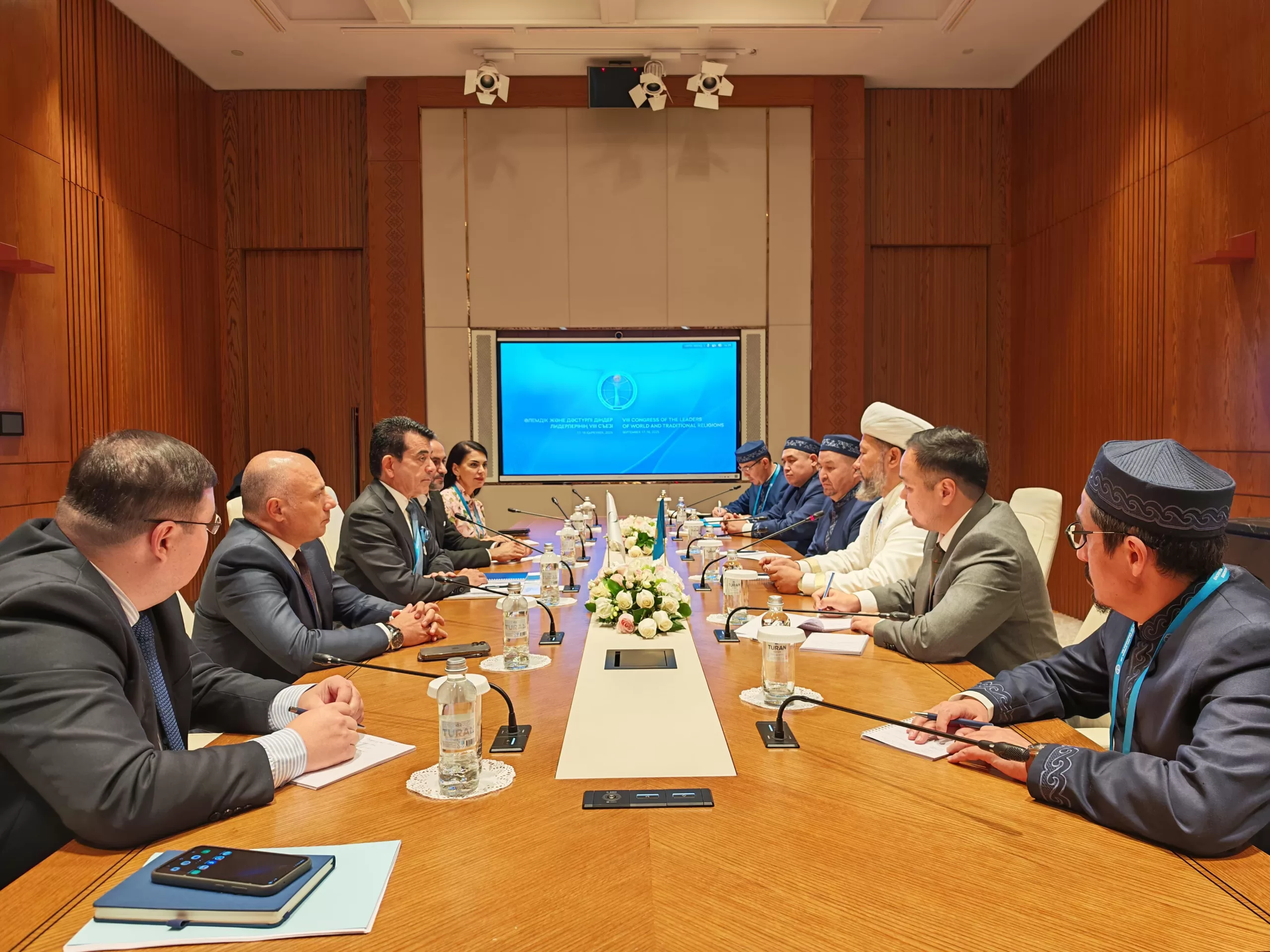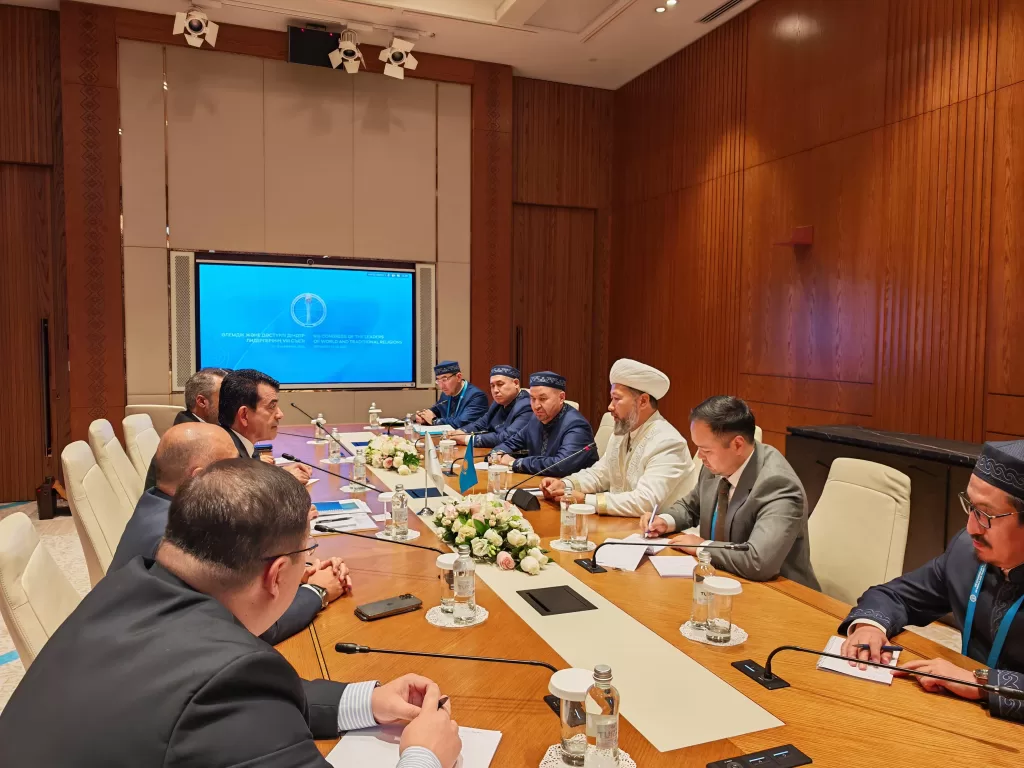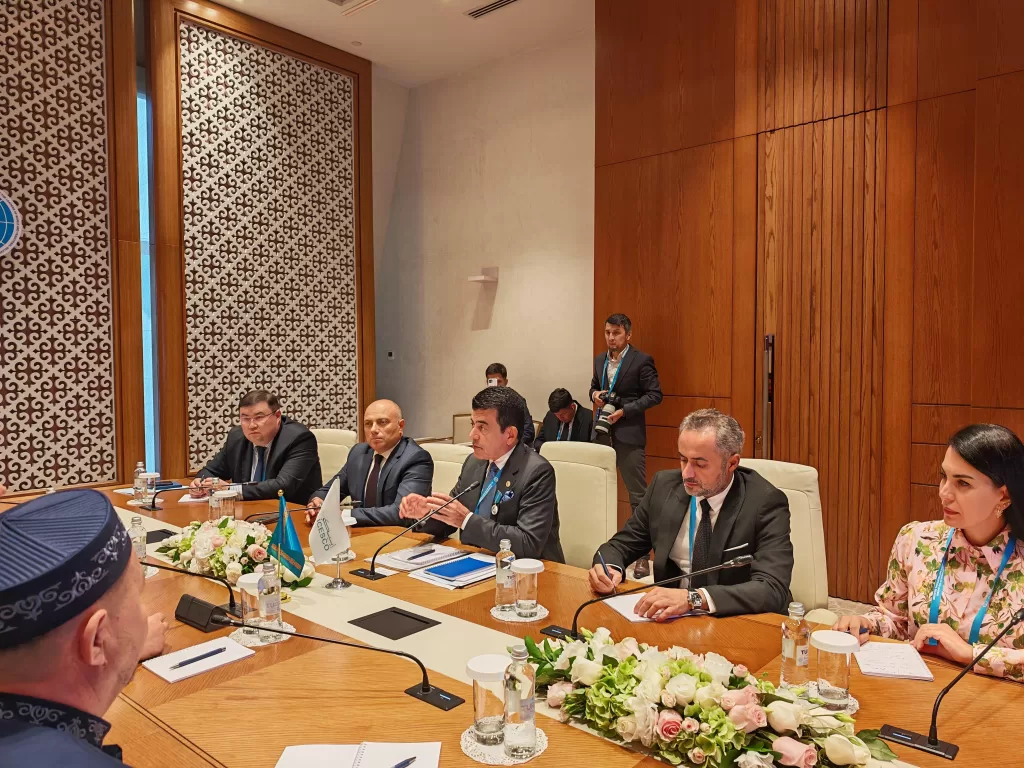
ICESCO Director-General, Kazakhstan’s Grand Mufti Discuss Ways to Enhance Religious and Cultural Dialogue Among Communities

18 September 2025
Dr. Salim M. AlMalik, Director-General of the Islamic World Educational, Scientific and Cultural Organization (ICESCO), met on Wednesday, 17 September 2025, with His Eminence Sheikh Nauryzbay Haj Taganuly, Grand Mufti of the Republic of Kazakhstan, to explore prospects for strengthening cooperation between the Organization and the Muftiate of Kazakhstan. The meeting took place on the sidelines of the 8th Congress of Leaders of World and Traditional Religions, hosted by the Center for Interfaith Dialogue in the capital, Astana.
During the meeting, Dr. AlMalik emphasized the Organization’s keenness to support all its Member States, including Kazakhstan, as a key partner in implementing ICESCO’s programs. He pointed out that this Congress represents an important opportunity to foster dialogue and understanding among various cultures and religions.

The Director-General also reviewed several initiatives that could be jointly developed by both parties, including the initiative “Read It, to Understand It”, which aims to promote a culture of conscious reading as an entry point to a deeper understanding of the Holy Quran, in addition to other projects that strengthen partnerships between ICESCO and Kazakh religious and scientific institutions.
For his part, H.E. Grand Mufti Sheikh Nauryzbay Haj Taganuly praised ICESCO’s pioneering role in addressing the issues of the Islamic world in the fields of education, science, culture, and media. He stressed the importance of building upon the fruitful cooperation already established between the two sides, noting the positive impressions left by his previous visit to the Organization’s headquarters and the remarkable efforts and valuable initiatives he observed.

At the close of the meeting, the two parties agreed to form a joint working group to prepare draft practical projects that will advance future cooperation, with the aim of consolidating shared human values and reinforcing the role of religious and cultural dialogue at both regional and international levels.



